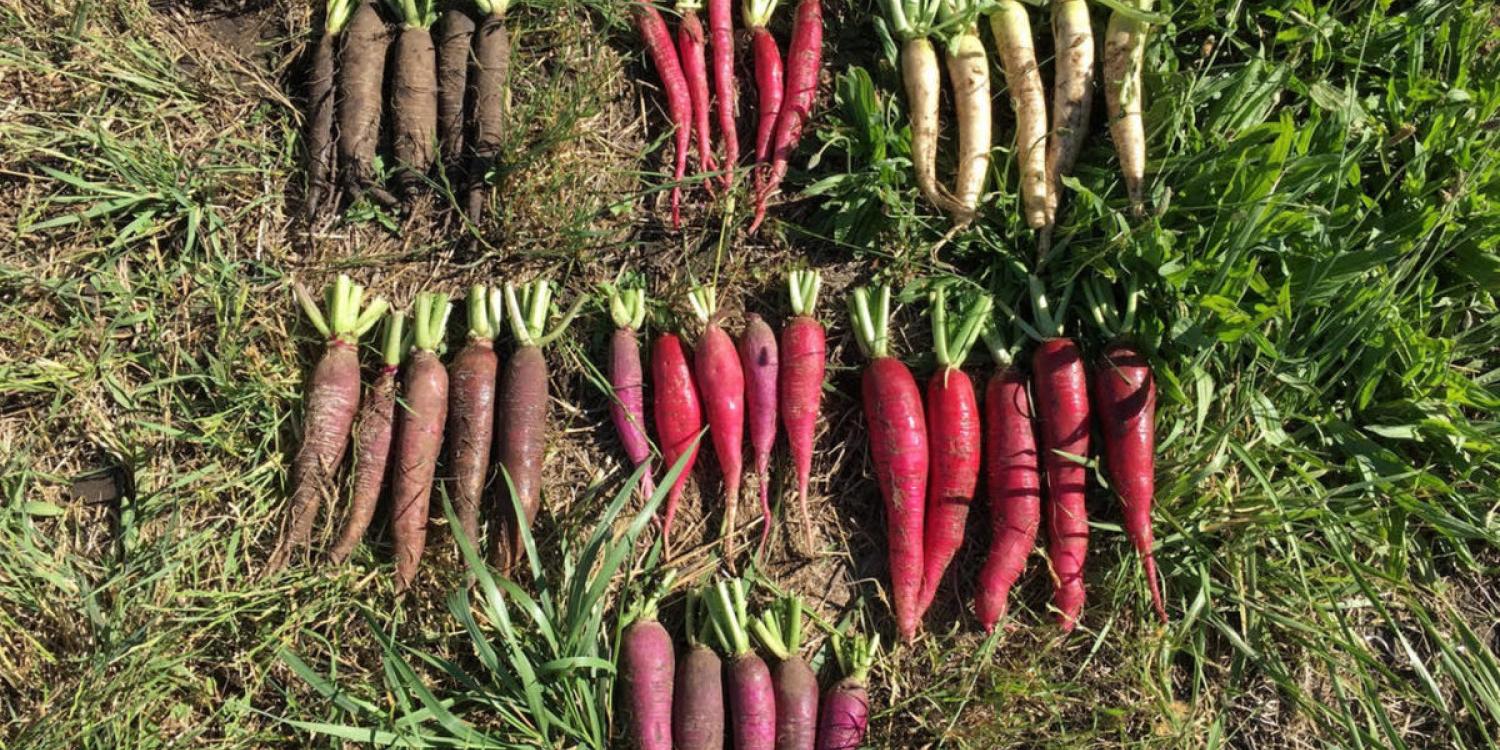
Southern Oregon has a climate well-suited for seed production, and there are already more than a dozen farmers in the area who are selling commercial seed on contract for regional, national and international seed companies.
But growing seed is a complex venture with its own set of challenges, and those who want to get started in it need proper training and education. Though the region has the potential to become an organic seed production hub, farmers interested in the industry need to learn how to do it well.
In response, Maud Powell, associate professor practice in the Oregon State University Extension Small Farms Program, led a project funded by SARE (Sustainable Agriculture Research and Education) to increase the number, capacity and success of organic vegetable seed producers in southern Oregon. The project team offered a training course, “Growing Seed Agripreneurs,” at the OSU Southern Oregon Research and Extension Center (SOREC) and conducted research on the barriers and challenges to creating a regional market for local seed producers.
The course, which was offered to both beginning and established farmers interested in growing seed, consisted of weekly meetings over the course of seven months. The 29-class curriculum covered topics including the planning, field preparation, growing, harvesting and cleaning of seed crops, as well as seed business and marketing concepts. Six field trips to local seed farms were included, and participants also planted and maintained an organic seed garden of market crops, all of which were harvested, threshed and cleaned by the group. Two half-day workshops open to anyone interested in seed production were held at a nearby farm with a focus on seed cleaning and equipment.
The second part of the project involved research into developing a market for local seed producers. The project team surveyed 15 seed producers and produce farmers to gather opinions on seed production and purchasing issues including quality, customer service, genetics and financial concerns. Possible solutions were identified that would increase regional producer interest in locally grown seed: demonstrating good quality through germination and disease-testing reports, offering direct sales and shipping to local growers, and offering varieties that meet the needs and criteria of growers.
As a result, 10 farmers completed the extensive training course that set them up for a potential future in organic seed production. Specific impacts included:
- Onsite learning: 39 people attended the workshops, which guided attendees through the seed harvesting and cleaning process.
- Identifying the best seeds: A variety trial during the project compared the quality of local and national seeds, and results were shared online for producers in southern Oregon.
- Local market potential: Feedback from the research shows if barriers are overcome, a market for locally grown organic seeds may succeed.
“Students appreciated the season-long series of classroom discussions and hands-on field training,” said Sebastian Aguilar, co-owner of Chickadee Farm and a member of the Organic Seed Alliance. “Growing a seed production garden from start to finish, and observing the changes, concepts and work that occurred along the way, provided a thorough understanding of the seed production process.”
Reprinted with permission from SARE.